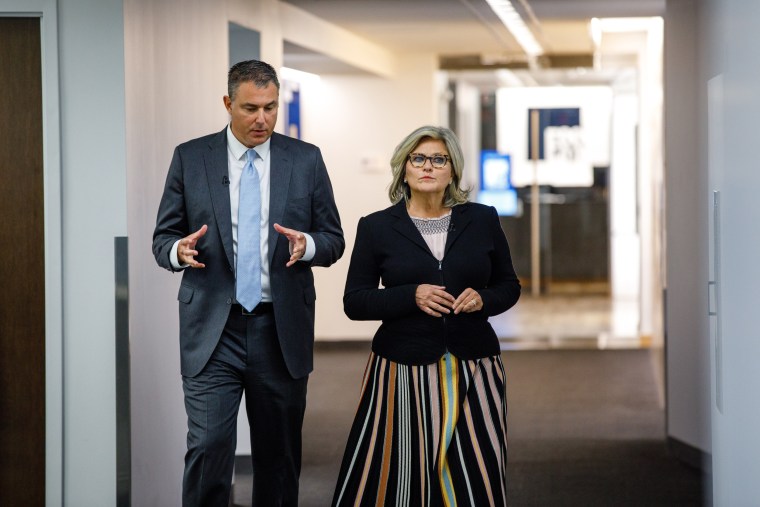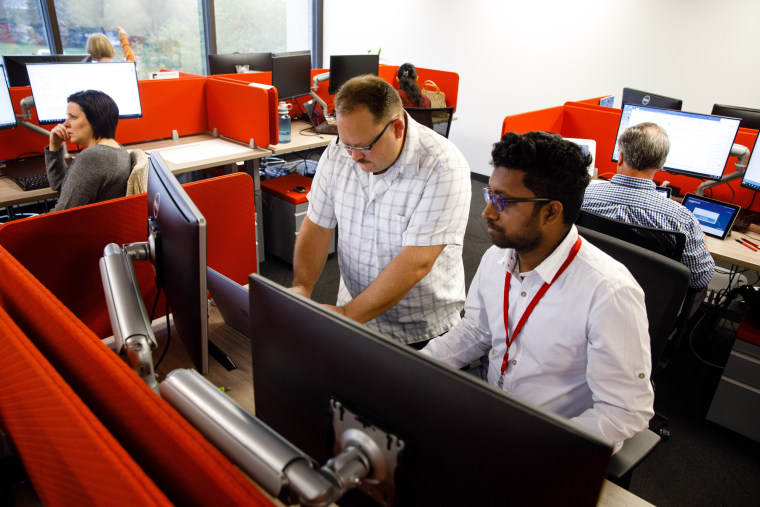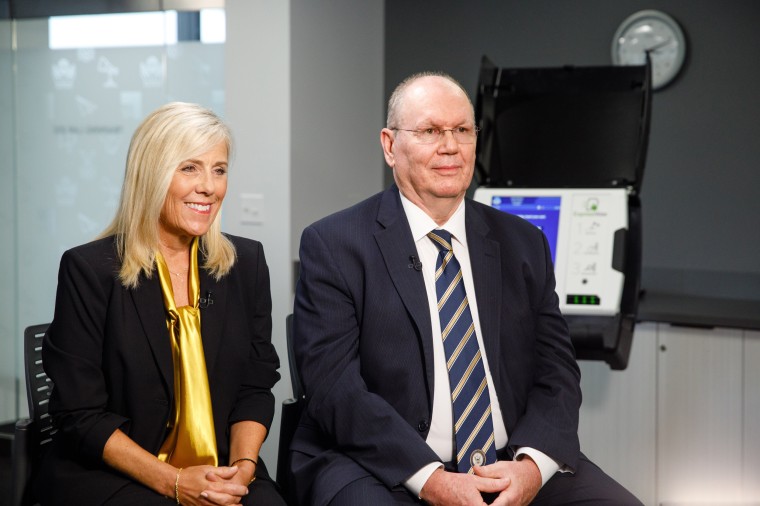As revelations come out about Dominion Voting Systems and massive voting fraud comes out the mass media is falling over itself to deny the accusations any way they can except to address the actual issues.
What the media was saying
earlier about voting machines
and Dominion and what they
are alleging now
The media seems to have a massive attack of AMNESIA!
As poll workers tallied votes from the U.S. presidential election, many social media users interpreted a clerk's error in a small, Republican-leaning Michigan county as vote-rigging because it wrongly favored Joe Biden before being fixed.
A week later, that misinterpreted mistake has snowballed into a deluge of false claims that Democrats have deep ties to Dominion Voting Systems, the company that supplies election equipment to Michigan and dozens of other states nationwide.
Claims that House Speaker Nancy Pelosi, California Sen. Dianne Feinstein and the Clinton Foundation have interest or influence in Dominion are all unsubstantiated. But that didn't stop tens of thousands of social media users from amplifying them on Facebook, Twitter and Instagram this week.
Here's what you need to know about the falsehoods spreading around Dominion Voting Systems.
https://abc7.com/dominion-voting-systems-misinformation-election-results/7898893/
However, they have completely forgotten about Russiagate and what they just wrote not long ago. Here are just a few of the articles showing previous concern about Dominion and voting machines. A lot of them revolved around security because of the Russiagate hoax.

The Dominion Voting Systems, which has been used in multiple states where fraud has been alleged in the 2020 U.S. Election, was rejected three times by data communications experts from the Texas Secretary of State and Attorney General’s Office for failing to meet basic security standards.
Unlike Texas, other states certified the use of the system, including Pennsylvania, where voter fraud has been alleged on multiple counts this week.
Dominion Voting Systems, a Canadian company headquartered in Denver, is one of three companies primarily used in U.S. elections. The others are Election Systems and Software and Texas based-Hart InterCivic.
The Dominion system was implemented in North Carolina and Nevada, where election results are being challenged, and in Georgia and Michigan, where a “glitch” that occurred reversed thousands of votes for Republican President Donald Trump to Democrat Joe Biden.
While Biden declared victory Saturday in his U.S. presidential race against Trump, the Trump campaign is launching several challenges to vote counts in states across the country, alleging fraud.
Dominion’s Democracy Suite system was chosen for statewide implementation in New Mexico in 2013, the first year it was rejected by the state of Texas.
Louisiana modernized its mail ballot system by implementing Dominion’s ImageCast Central software statewide; Clark County, Nevada, implemented the same system in 2017. Roughly 52 counties in New York, 65 counties in Michigan and the entire state of Colorado and New Mexico use Dominion systems.
According to a Penn Wharton study, "The Business of Voting," Dominion Voting Systems reached approximately 71 million voters in 1,635 jurisdictions in the U.S. in 2016.
Dominion “got into trouble” with several subsidiaries it used over alleged cases of fraud. One subsidiary is Smartmatic, a company “that has played a significant role in the U.S. market over the last decade,” according to a report published by UK-based AccessWire.
Litigation over Smartmatic “glitches” alleges they impacted the 2010 and 2013 mid-term elections in the Philippines, raising questions of cheating and fraud. An independent review of the source codes used in the machines found multiple problems, which concluded, “The software inventory provided by Smartmatic is inadequate, … which brings into question the software credibility,” ABS-CBN reported.
Smartmatic’s chairman is a member of the British House of Lords, Mark Malloch Brown, a former vice-chairman of George Soros’ Investment Funds, former vice-president at the World Bank, lead international partner at Sawyer Miller, a political consulting firm, and former vice-chair of the World Economic Forum who “remains deeply involved in international affairs.” The company’s reported globalist ties have caused members of the media and government officials to raise questions about its involvement in the U.S. electoral process.
In January, U.S. lawmakers expressed concern about foreign involvement through these companies’ creation and oversight of U.S. election equipment. Top executives from the three major companies were grilled by both Democratic and Republican members of the U.S. House Committee on House Administration about the integrity of their systems.
Also in January, election integrity activists expressed concern “about what is known as supply-chain security, the tampering of election equipment during manufacturing,” the Associated Press reported. “A document submitted to North Carolina elections officials by ES&S last year shows, for example, that it has manufacturing operations in the Philippines.”
All three companies “have faced criticism over a lack of transparency and reluctance to open up their proprietary systems to outside testing,” the Associated Press reported. In 2019, the AP found that these companies “had long skimped on security in favor of convenience and operated under a shroud of financial and operational secrecy despite their critical role in elections.”
In its third examination of Dominion systems in 2019, Texas officials once again rejected using it after identifying “multiple hardware and software issues that preclude the Office of the Texas Secretary of State from determining that the Democracy Suite 5.5-A system satisfies each of the voting-system requirements set forth in the Texas Election Code.”
The examiners raised specific concerns about whether the system “was suitable for its intended purpose; operates efficiently and accurately; and is safe from fraudulent or unauthorized manipulation.”
They concluded that Dominion systems and corresponding hardware devices did not meet Texas Election Code certification standards.
Last December, a group of Democratic politicians sent a letter to leaders of private equity firms that own the major election vendors asking them to disclose information including ownership, finances and research investments.
"The voting machine lobby, led by the biggest company, ES&S, believes they are above the law,” Sen. Ron Wyden, D-Ore., a member of the Intelligence Committee and co-signer of the letter, said. “They have not had anybody hold them accountable even on the most basic matters.”
ES&S Chief Executive Tom Burt dismissed the criticism, telling NBC News that it was “inevitable and impossible to answer,” and called on Congress to implement “greater oversight of the national election process.”
“There are going to be people who have opinions from now until eternity about the security of the equipment, the bias of those companies who are producing the equipment, the bias of the election administrators who are conducting the election,” Burt told NBC News.
“What the American people need is a system that can be audited, and then those audits have to happen and be demonstrated to the American public,” Burt said.
Burt argued last year in an op-ed published by Roll Call that national regulatory oversight was needed, including requirements for paper backups of individual votes, mandatory post-election audits and additional resources for the U.S. Election Assistance Commission.
NBC News examined publicly available online shipping records for ES&S and found that many parts for U.S. election machines, including electronics and tablets, were made in China and the Philippines. When it raised concerns about the potential for technology theft or sabotage, Burt said the overseas facilities were “very secure” and the final assembly of machines occurs in the U.S.
The AP also surveyed the election software being used by all 50 states, the District of Columbia and territories. Roughly 10,000 election jurisdictions nationwide were using Windows 7 or an older operating system in 2019 to create ballots, program voting machines, tally votes and report counts, the AP found. Windows 7 reached the end of its operational life in January 2020.
After Jan. 14, Microsoft stopped providing technical support and producing “patches” to fix software vulnerabilities, making Windows 7 easy to hack unless U.S. jurisdictions paid a fee to receive security updates through 2023, the AP found.
According to its assessment, multiple states were affected by the end of Windows 7 support, including Arizona, Florida, Georgia, Iowa, Indiana, Michigan, North Carolina, many counties in Pennsylvania, and Wisconsin.
Chinese parts in voting machines? Who would have thought?
The secrecy of ES&S and its competitors has pushed politicians to seek information on security, oversight, finances and ownership. This month, a group of Democratic politicians sent the private equity firms that own the major election vendors a letter asking them to disclose a range of such information, including ownership, finances and research investments.
"The voting machine lobby, led by the biggest company, ES&S, believes they are above the law,” said Sen. Ron Wyden, D-Ore., a member of the Intelligence Committee who co-signed the letter. “They have not had anybody hold them accountable even on the most basic matters.”
ES&S Chief Executive Tom Burt dismissed criticism as inevitable and impossible to answer, but he called for greater oversight of the national election process.
“There are going to be people who have opinions from now until eternity about the security of the equipment, the bias of those companies who are producing the equipment, the bias of the election administrators who are conducting the election,” Burt said in an interview. “I can’t do anything to affect those people’s opinions.”
“What the American people need is a system that can be audited, and then those audits have to happen and be demonstrated to the American public,” Burt said. “That's what will cut through the noise.”
Supply chain questions
ES&S invited NBC News journalists into its headquarters, the first time it has done so for a national news organization. The walls were decorated with images of the Constitution and inspirational messages about quality control. In glass-walled rooms etched with the company’s patents, technicians tested machines under tight security.
Burt, a native Nebraskan, has called for federal regulations that would require voting machine companies to address some of the key questions posed to ES&S. In June, he wrote an op-ed asking Congress for more regulation, which would include requirements for paper backups of individual votes, mandatory post-election audits and more resources for the U.S. Election Assistance Commission to speed improvements.

NBC News examined publicly available online shipping records for ES&S for the past five years and found that many parts, including electronics and tablets, were made in China and the Philippines, raising concerns about technology theft or sabotage.
During the tour, Burt said the overseas facilities are “very secure.” He said the final assembly of voting machines takes place in the U.S.
Chinese manufacturers can be forced to cooperate with requests from Chinese intelligence officials to share any information about the technology and therefore pose a risk for U.S. companies, NBC News analyst Frank Figliuzzi, a former assistant director of the FBI for counterintelligence, said. That could include intellectual property, such as source code, materials or blueprints. There is also the concern of machines shipped with undetected vulnerabilities or backdoors that could allow tampering.
In a letter to NBC News, ES&S said it takes “great care” with its foreign supply chain, including conducting risk assessments and making on-site visits to suppliers to make sure that components “are trusted, tested and free of malware.” It said that all of its facilities adhere to international standards, that it manufactures in compliance with all federal guidelines and that it follows cybersecurity best practices.
The company says that its overseas manufacturing site has been successfully audited by the Election Assistance Commission and that the company conducts on-site visits of its suppliers “to ensure that components are trusted, tested and free of malware.”
“Some components (such as surface mount capacitors, resistors, inductors and fixed logic devices) may be sourced from China-based manufacturers,” the letter said, referring to basic circuitry components.
ES&S said it conducts quality assurance tests on the machines.
Ownership questions
Questions about who owns the major voting machine manufacturers have followed the industry for years.
The issue took on greater urgency after the FBI disclosed in July 2018 that a Russian oligarch had invested in a Maryland election services firm. Officials in Maryland and North Carolina have started questioning voting machine makers about potential foreign ownership.
Because it is privately owned, ES&S is not legally obligated to reveal its ownership or any other details about its finances, although Burt did confirm that the company generated about $100 million in sales last year.

But in response to questions this year from the North Carolina State Board of Elections, ES&S disclosed which investors own more than 5 percent of the company. They include Burt, Chief Financial Officer Tom O’Brien and the Omaha-based private equity firm McCarthy Group, which owns a controlling interest. The letter identified two passive investors, Nancy McCarthy and Kenneth Stinson, who own stakes of more than 5 percent in McCarthy Group.
ES&S said McCarthy Group’s bylaws prevented it from revealing other individual investors, but it affirmed that they are all U.S. citizens or trusts or corporations owned by Americans. The company offered to pay for an independent auditor to verify that all the investors are Americans. NBC News declined, as citizenship itself wouldn’t answer other potential questions, including political affiliations or other conflicts of interest.
McCarthy Group did not respond to NBC News’ requests for comment.
Testing questions
Virtually no laws govern the cybersecurity aspects of voting machine technologies. But ES&S points to its voluntary efforts to improve voting machine security, most notably a new program with the Energy Department’s Idaho National Labs, the same federal facility that tests the power grid and nuclear power generators. ES&S machines underwent eight weeks of vulnerability testing and penetration by government hackers.
Chris Wlaschin, head of systems security for ES&S, said at a Homeland Security cybersecurity summit in Washington in September that the company’s machines are not prone to a remote attack over the internet. But he added that someone with enough time and access could make a machine “inoperative or unusable.”
Although Wlaschin said the company would release an executive summary of the government testing, the company recently said it has nothing for “external release.” It said recommendations from the tests would be incorporated into “future voting system releases.”
Wyden said he was concerned by the company’s foreign parts supply and was working on legislation to limit it.
“What you have found is particularly important because of the China connection,” he said.

“They’re claiming that the Department of Homeland Security has been working with them. I’m going to ask for this information on the basis of your report within 10 days,” he said.
Eddie Perez, global director of technology development for the Open Source Election Technology Institute, a nonprofit election technology research group with which NBC News has partnered since 2016, said the lack of oversight is problematic.
“The way people vote is managed by a couple of entities that people don’t know a lot about, and that creates risks for the country,” he said.
When it comes down to the essentials, voting machine makers “behave based on the level of regulation they have,” Perez said.
“They have to check the boxes,” he added. “But once they’ve done that, they focus on selling their product.”
They were concerned about hacking back in 2019 but magically those concerns have evaporated.
https://about.bgov.com/news/voting-machine-firms-add-lobbyists-amid-election-hacker-concerns/
In a Jan. 9 House Administration Committee hearing, three of the largest U.S. voting system manufacturers said they would support a range of new regulatory and reporting requirements, but at least one election security expert said that may not be enough.
Among the potential requirements being floated are that states purchase voting machines with paper records and conduct post-election audits for every vote cast, publicly report on equipment-related security risks and follow new federally crafted guidelines for how to best set up their manufacturing supply chains.
The three companies -- Election Systems and Software, Dominion Voting Systems and Hart InterCivic -- have a history of resisting outside scrutiny of their products, but company representatives expressed openness to new federal regulations to bolster confidence about the security of their products.
"I think we would support any requirements that [apply] to all vendors in our industry that would help educate users of our system and anyone who interacts with them," said E&S CEO Tom Burt.
https://gcn.com/articles/2020/01/10/voting-equipment-security-requirements.aspx
What sort of banana republic has to farm out the counting of the votes to a foreign country?
Catherine Engelbrecht, founder of True the Vote, noted that many states commissioned a foreign company based in Spain to provide various election services — including online voting — in the 2020 presidential election.
Engelrecht offered her remarks on Wednesday’s edition of SiriusXM’s Breitbart News Daily with host Alex Marlow.
CBRE, a giant real estate company partially owned by Sen. Dianne Feinstein’s husband, Richard Blum, is costing the U.S. Postal Service millions of dollars a year in lease overpayments, and its exclusive contract should be immediately canceled, the service’s inspector general has found.
Eyebrows rose when the USPS made the contract with CBRE in June 2011 for all real estate transactions. Blum chaired CBRE at the time; he stepped down last year, but remains a director and a major shareholder. Feinstein, D-Calif., has always denied involvement in the deal, which proved lucrative as the cash-strapped Postal Service looked to its excess real estate to finance operations.
The contract enables CBRE to market and sell properties, and conduct negotiations for leases of postal buildings. Prior to the contract, USPS negotiated leases directly with landlords. Now, CBRE often represents both the Postal Service and the landlord in negotiations, known as “dual agency transactions.”






















No comments:
Post a Comment
Note: only a member of this blog may post a comment.